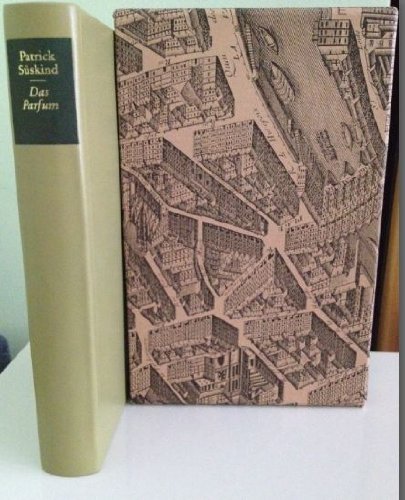


Several young girls are murdered by him, stripped of their scents and left as odorless corpses. Personal power seems greatly to increase, and on his return to civilization he resumes his fatal career. Then he vanishes into the wilderness for seven years, in a region of no smell where his own But his ambitions are fatal: not only does his company prove mortal to those who take him in, but there are precious scents that reside only in certainįavored human beings and must, like blood, be sucked out.Īt first one specific human scent haunts him, and he kills the young girl who has the misfortune to possess it only thus can he rob ''a living creature of its aromatic soul.'' This murder precipitates his odorous, malevolent lusts,īut before he instigates further deaths he becomes apprenticed to a Parisian perfumer and concocts scents never before known on this earth. Perfumes that create an exhalatory illusion, a phantom object lingering in the air. His sole ambition is to become the greatest perfumer of all time in order to conceal his own lack of odor he creates a perfume that ''did not smell like a scent, but like a human being who gives off a scent.'' He can even manufacture For him, this is a world stripped bare of its moreĮlegant trappings and organized around the one fundamental principle of smell. Malice'' -but this means that in 18th-century France, in an age of ''reason'' and a time of ''progress,'' he is a barbaric intruder. As a child and young man, he survives as an outsider only through some stubborn instinct - deciding ''in favor of life out of sheer spite and sheer Human being, for example, being composed of cat feces, cheese and vinegar. He recognizes the odors of separate stones and of the varieties of water he can locate even the most tremulous perfume from miles away he can separate the simplest stench into its various elements - that of a Outcast - both damned and blessed, pariah and magician. He is an orphan whose absence of body odor turns him, also, into an But the point, the miraculous point, is that he has no smell at all. In its most fetid spot, beside a mephitic cemetery and beneathĪ fish stall, the hero of ''Perfume,'' Jean-Baptiste Grenouille, is born. PATRICK SUSKIND'S novel is a book of smells - the odors of history, in fact - and on the first page 18th-century Paris is anatomized into its component stinks. Section 7, Column 1 Book Review DeskīY PETER ACKROYD Peter Ackroyd's most recent novel is ''Hawksmoor.'' He is the author of ''T. September 21, 1986, Sunday, Late City Final Edition The New York Times: Book Review Search Article


 0 kommentar(er)
0 kommentar(er)
